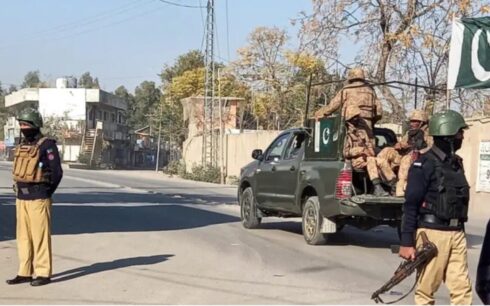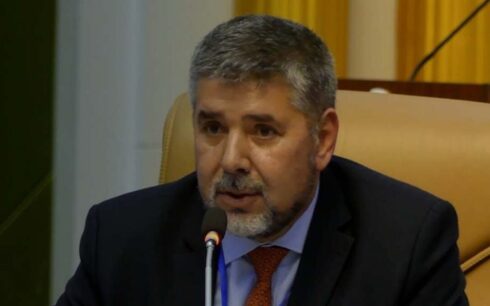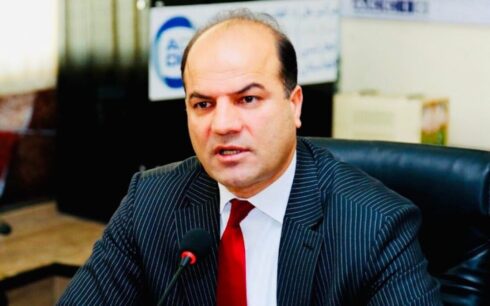In the early days of the Taliban’s resurgence (August 2021), Iran was among the countries that viewed it with considerable optimism, perceiving it as a victory for a regional ally and a defeat for their main adversary (the United States). This optimism was such that Ahmad Nadri, a member of Iran’s Islamic Consultative Assembly (Majles-e Showrā-ye Eslāmī), referred to the Taliban as an authentic regional movement. Following the principle of “the enemy of my enemy is my friend,” Iran, despite its official relations with the Afghanistan government, continued to support the Taliban over the past two decades. This opinion piece examines the Iran-Taliban relationship from a security perspective.
Historical context of Iran-Taliban relations
Iran’s relationship with the Taliban during the group’s first period in power was marked by many ups and downs. Iran did not recognize the Taliban and continued to recognize the Islamic State of Afghanistan, composed of Mujahideen groups led by Sibghatullah Mojaddedi and Burhanuddin Rabbani, maintaining strategic relations with anti-Taliban factions. Iran supported these factions with military, financial, and educational assistance during their resistance against the Taliban.
In 1997, when the Taliban took over Mazar-i-Sharif in the north of Afghanistan, they killed at least nine Iranian diplomats and a journalist at the country’s consulate there, sparking outrage in Iran. There were speculations that Iran might respond with military action, and around 270,000 Iranian troops were stationed at the Afghanistan border.
However, this action was halted at the last moment by a decision from Supreme Leader Ali Khamenei. The Iranian hostages were released with the intervention of the United Nations, and the attack was averted. In February of the following year (1999), negotiations between Iran and the Taliban took place but did not improve relations.
Despite Iran’s support for anti-Taliban factions during the Taliban’s first rule, after the group’s fall, Iran opened its doors to fleeing Taliban leaders and individuals, providing them refuge. This relationship was not just a matter of ordinary refuge; there were claims that some Taliban leaders received special privileges and accommodations in Iran.
During the Republic era, although Iran officially maintained comprehensive relations with the Afghanistan government, there is substantial evidence suggesting that Iran supported Taliban leaders in creating instability, targeting international forces, and obstructing major national projects. Iran’s support was primarily directed towards Taliban activities in western and southwestern Afghanistan, such as with figures like Sadr Ibrahim and Zaker Qayyum, who were under its patronage. Recently, Mohammad Javad Zarif, the vice president for strategic affairs of new president Masoud Pezeshkian, claimed in his new book that the Taliban rose to power with Iranian support. The Taliban’s main mission was to create security challenges for the implementation of major water projects in western Afghanistan and the TAPI project, which posed strategic challenges in energy and water for Iran.
Another reason for Iran’s cooperation with the Taliban is the manner in which Mullah Akhtar Muhammad Mansour, the former Taliban leader, was killed in 2016, when he entered Pakistan from Iran, he was targeted by a U.S. drone strike in Baluchistan. Following Mansour’s death, Pakistan’s Foreign Ministry announced finding a passport with Mansour’s photo at the incident site, indicating he traveled to Iran under a false name. There were claims of close ties between Mansour and the Iranians. Additionally, several Western media outlets have reported that Iran even provided training centers for the Taliban within its territory.
Taliban and Iran after 2021
With the Taliban’s return to power in 2021, Iran has, on the surface, seen the Taliban’s presence in Afghanistan as an opportunity and maintains close relations with them. Although Iran has refrained from officially recognizing the Taliban regime in Kabul, it handed over the Afghanistan embassy in Tehran and, recently, the Afghanistan consulate in Mashhad to Taliban representatives. Despite understanding the security realities in Afghanistan, Iran’s foreign policy towards the country is economically driven. Efforts to sustain these relations have continued, with various delegations exchanged and multiple cooperation documents signed.
Tehran has maintained its economic and trade cooperation with Kabul under Taliban control and given that both Iran and Afghanistan face international sanctions, it seems both sides are interested in a new level of partnership and friendship. The trade relations between the two countries, especially Afghanistan’s imports from Iran, remain strong, with Iran being a leading source of imports for Afghanistan. According to Taliban’s official statements, Afghanistan imported $243.3 million worth of goods from Iran in June 2024, and the Iranian authorities have also said in the latest case that 25% of Afghanistan’s total imports are from Iran.
In the ongoing water disputes over the Helmand River, violent border clashes occurred last year between Iranian forces and the Taliban. While Iran claims it currently receives only four percent of its water share from this river and blames Kabul for new dam constructions, the Taliban attribute the issue to climate change and insufficient rainfall.
Despite Iran’s optimism, it is gradually coming to realize that friendship with this “bear” may not end well. This concern is even reflected in official Iranian statements. For instance, Hassan Kazemi Qomi, Iran’s ambassador to Kabul, recently described Afghanistan as a source of terrorism threat to neighboring countries during a regional contact group meeting in Tehran.
Seyed Rasoul Mousavi, an Iranian Foreign Ministry official who previously promoted and whitewashed the Taliban, recently described relations with the Taliban as the most difficult form of political management. Several sophisticated terrorist attacks in Shah-e-Cheragh mosque and the commemoration of Qasem Soleimani’s death have been implicitly attributed by Iranians to Afghanistan soil. Security threats along Iran’s borders have increased unprecedentedly, with several armed and verbal clashes occurring between Iranian border guards and Taliban militias. Statistical reviews of security incidents in Iran since the Taliban’s resurgence show a shift from earlier optimism among Iranian officials. This situation has led Iran’s intelligence agencies to view Afghanistan migrants with increased suspicion.
The Taliban has adopted a dual approach in its dealings with Iran. Many Taliban members consider Iran, a Muslim country with a Shiite majority, as a natural enemy. This view has been repeatedly expressed by Taliban members at various levels. The Taliban has severely restricted and even banned many of Iran’s political tools of influence, such as promoting the Persian language, ancient customs like Nowruz and Yalda Night, and Shiite religious practices including Muharram, Eid-e-Ghadir, and Mid-Sha’ban ceremonies. The celebration of Quds Day, considered a display of Iran’s regional influence, has not been allowed by the Taliban since they came to power.
The Taliban views all those entering Afghanistan from Iran as suspected infiltrators aimed at disrupting their rule. Since their resurgence, they have arrested, disappeared, or killed dozens of returnees from Iran, especially former security and defense forces members and political and cultural activists.
Contrary to Taliban claims, drug trafficking from Afghanistan to Iran remains a serious issue. Iranian authorities have repeatedly reported large seizures of traditional and synthetic drugs originating from Afghanistan at border points or within their territory. The Iranian position on this matter is such that the head of Iran’s Anti-Narcotics Police questioned the Taliban’s claims of banning drug cultivation and trade during a recent BRICS anti-drug task force meeting in Russia.
Despite mutual suspicions between the Taliban and Iran, the expansion of trade relations seems to be a priority. This interest may be driven by shared difficulties (existing sanctions) and a convenient escape from them.
Conclusion
Iran’s friendship with the Taliban, even if based on the principle that “the enemy of my enemy is my friend,” could be a miscalculation. Based on my understanding of the Taliban’s nature and narrative, Shiite Iran is considered an enemy by the majority of Taliban members and is ideologically labeled as “Rafidi” (a derogatory term for Shiites). The fundamental belief of the Taliban is that Iran, with its Shiite government perceived as anti-Sunni—based on what they observe and hear about the treatment of Sunnis in Iran—cannot be their ally.
With this perspective, which forms the backbone of the Taliban’s worldview, the group’s export of terrorism to the region and the world has been facilitated by advancements in technology. Additionally, due to the current situation and the Taliban’s oppression of a large segment of the Afghanistan population, especially women, there has been a mass migration from Afghanistan to Iran. Among this large population, there are undoubtedly individuals with Taliban sympathies who are using Iranian territory as a transit route to reach European countries in an organized manner.
Although one of Iran’s key foreign policy priorities is the export of the Islamic Revolution, in this competition, the Taliban’s ideological export surpasses Iran’s both in quality and quantity. According to analyses, Iran’s optimism toward the Taliban may result in significant consequences if this cooperation and friendship continue.
Besmillah Tabaan is a former General Director of the Crime Investigation Department (CID) of Afghanistan. He is currently pursuing a Ph.D. in security studies, with a focus on Afghanistan, Iran, and Pakistan. He can be reached on X @BesmillahTaban.
The views and opinions expressed in this article are those of the author and do not necessarily reflect the official policy or position of Amu TV.





